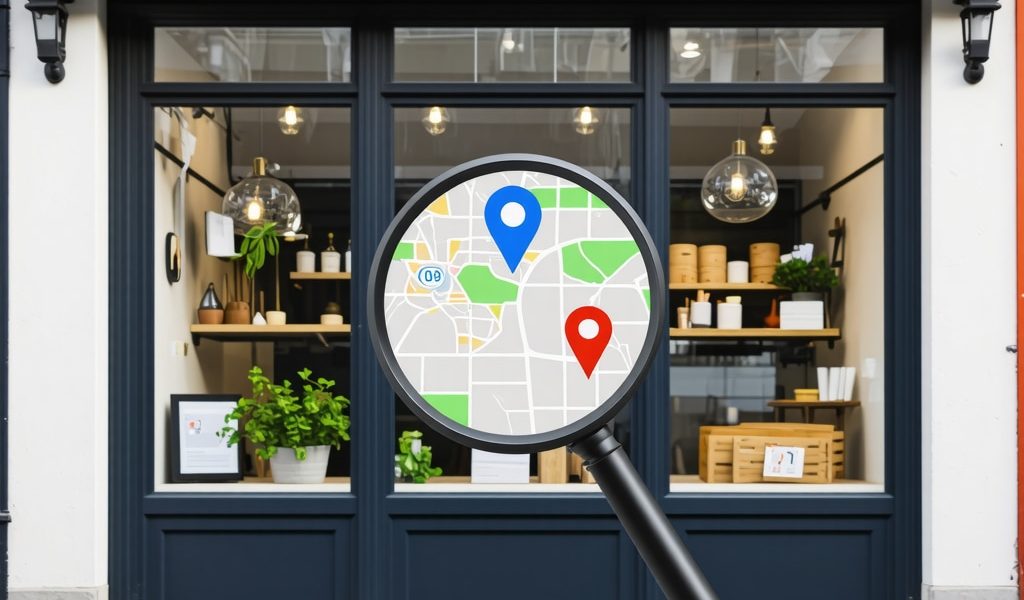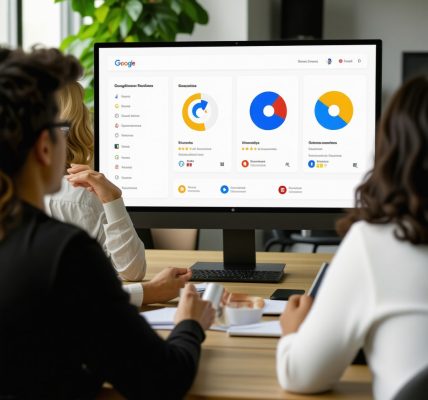Unlocking Local SEO: The Questions That Spark Small Business Success
In the dynamic world of digital marketing, small businesses often grapple with the nuances of local SEO—search engine optimization tailored to capture nearby customers. Understanding the right questions to ask can be the catalyst for transforming a modest local presence into a thriving community staple. This guide dives deep into the essential local SEO questions every small business should ask to harness targeted visibility, build credibility, and drive foot traffic through strategic digital positioning.
What Defines Effective Local SEO for Small Businesses?
Local SEO is not merely about sprinkling keywords on your website; it’s an intricate strategy focused on optimizing your online presence for geo-specific searches. Small businesses must ask: How do I ensure my Google Business Profile (GBP) reflects my brand accurately? This entails more than listing your business name and address—it involves comprehensive profile optimization, including compelling descriptions enriched with relevant keywords, precise NAP (Name, Address, Phone Number) consistency, and visually engaging photo assets. For a detailed approach, exploring how to optimize your Google Business listing effectively can provide actionable insights.
How Can Small Businesses Leverage Google Business Profile to Boost Local Rankings?
Google Business Profile stands at the forefront of local SEO, acting as a powerful conduit between your business and local customers. Businesses should inquire: What are the best practices to generate authentic reviews and manage citations to enhance credibility? Actively soliciting and responding to reviews not only builds trust but also signals to Google that your business is engaged and reputable. Moreover, maintaining consistent citations across authoritative directories fortifies your local search authority. Resources like GMB review generation best practices offer expert advice on these critical facets.
Which Local SEO Metrics Should Small Businesses Monitor for Continuous Improvement?
Small business owners often overlook the importance of tracking key performance indicators (KPIs) that reveal the effectiveness of their local SEO efforts. Asking: What tools and metrics can I use to analyze my Google Business Profile’s performance? is vital. Metrics such as search queries, customer actions, and photo views give invaluable insights into user engagement and visibility. Leveraging tools recommended in effective ways to track GMB performance can empower businesses to make data-driven decisions.
How Does NAP Citation Consistency Impact My Local SEO Authority?
NAP citation consistency—ensuring your business name, address, and phone number are uniform across all online platforms—is a cornerstone of local SEO trustworthiness. Discrepancies can confuse search engines and potential customers alike, diluting your ranking potential. Small business owners must ask not only how to maintain citation consistency but also how to strategically manage citations for maximum local authority. Comprehensive strategies are elaborated in maintain NAP citation consistency to dominate local search engines.
Empowering your business with these pivotal local SEO questions unlocks pathways to enhanced visibility, credibility, and growth in your community. For small businesses eager to deepen their local SEO knowledge, exploring expert resources and continuously refining their Google Business Profile is indispensable. Ready to elevate your local presence? Share your experiences or questions below and connect with a community of small business SEO enthusiasts.
For authoritative guidance on the broader importance of local SEO, consider insights from Moz’s comprehensive overview of local SEO best practices, which emphasize the critical role of Google Business Profile optimization in local ranking success (Moz Local SEO Guide).
Why Consistency in Your Online Presence Truly Matters
Reflecting on my journey optimizing local SEO, I’ve realized that consistency is more than just a buzzword—it’s the backbone of trustworthiness in the eyes of search engines and customers alike. One misstep I encountered early on was inconsistent business hours listed across different directories. It caused confusion and even some frustrated customers. That experience drove home the importance of maintaining uniform NAP details not only on Google Business Profile but also across every citation platform. This consistency builds a strong foundation for search engines to confidently rank your business higher locally. For anyone wondering how to manage this efficiently, this step-by-step citation management guide is a valuable resource that helped me streamline the process.
How Can I Make My Google Business Profile Stand Out Beyond Basics?
It’s tempting to think that simply filling out your business name, address, and phone number is enough, but I’ve learned that Google rewards profiles that actively engage users. Adding frequently updated posts, responding promptly to reviews, and uploading high-quality photos are simple yet powerful tactics. I remember when I started regularly posting updates about seasonal offers and community events on my GBP—it not only sparked more customer interactions but also improved my local rankings.
Interestingly, a study from BrightLocal shows that businesses that respond to reviews see a 16% increase in customer engagement, a statistic that resonated with my own experience and motivated me to prioritize review management (BrightLocal Local Consumer Review Survey).
What’s the Secret Sauce to Balancing Keyword Optimization Without Overstuffing?
This question often comes up when small business owners ask me about crafting their GBP descriptions and posts. From my trials, I found that the key is integrating keywords naturally while focusing on clear, helpful descriptions that speak directly to your audience’s needs. Keyword stuffing not only feels off to readers but also risks penalties from Google. Instead, I recommend starting with thorough keyword research and then weaving those terms into engaging narratives about your products, services, and community involvement.
For those curious about diving deeper, exploring step-by-step GMB keyword research can provide a structured approach to finding the right balance.
Encouraging Real Interaction: How Authentic Reviews Transform Local SEO
One of the most rewarding aspects of managing my Google Business Profile has been cultivating genuine customer reviews. I used to shy away from actively asking for reviews, fearing it might seem pushy. Over time, I realized that customers appreciate the opportunity to share their experiences and feel valued when businesses engage with their feedback. This two-way interaction not only builds trust but also signals to Google that your business is active and customer-focused.
In fact, a well-managed review strategy was pivotal in elevating my business above competitors in local search. To learn practical methods of encouraging and managing reviews, unlocking local business growth with effective GMB review management is a fantastic guide worth checking out.
How Do I Know If My Local SEO Efforts Are Paying Off?
Tracking progress can feel overwhelming at first, but focusing on a few key metrics made a big difference for me. I regularly monitored search queries that led customers to my GBP, the number of clicks to my website, calls, and direction requests. Watching these numbers grow was both motivating and insightful, allowing me to adjust my strategies where needed. Using tools highlighted in effective ways to track GMB performance helped me gain clarity on what worked best.
What are your biggest local SEO challenges? Have you found any strategies that really clicked for your business? Share your stories or questions in the comments below—I’d love to learn from your experiences and keep this conversation going!
Harnessing Advanced Google Business Profile Features for Competitive Edge
Beyond the essentials of NAP consistency and review management, savvy small business owners can leverage sophisticated Google Business Profile (GBP) functionalities to gain a formidable advantage in local search rankings. For example, utilizing the Q&A section strategically allows businesses to preemptively address common customer inquiries while embedding relevant keywords naturally. Equally impactful is the integration of booking and ordering features directly within the GBP, which streamlines customer experience and increases conversion rates.
Another underutilized tactic is the use of Google Posts with targeted call-to-actions (CTAs) tailored to specific marketing campaigns or seasonal promotions. These posts not only engage local audiences but also send fresh, relevant signals to Google’s algorithm, enhancing your profile’s visibility. For those interested in a granular walkthrough, advanced Google Business Profile features guide offers deep insights into maximizing these tools.
How Can I Analyze the Impact of Google Business Profile Attributes on Local Search Performance?
Google Business Profile attributes, such as “Black-owned”, “Women-led”, or “Wheelchair accessible”, can significantly influence consumer decision-making and local SEO rankings. To assess their impact, businesses should utilize GBP’s insights dashboard to monitor changes in views, clicks, and customer engagement pre- and post-attribute updates. Additionally, correlating these insights with Google Analytics data on website behavior can reveal whether attribute additions drive higher-quality traffic.
Implementing A/B testing by toggling attributes on and off in controlled periods further refines understanding of their SEO efficacy. This nuanced approach ensures that attribute selections align with both community values and search optimization goals.
Leveraging Schema Markup to Supercharge Local SEO and Google Business Profile Synergy
While Google Business Profile forms the cornerstone of local search visibility, supplementing it with precise Schema.org markup on your website exponentially amplifies SEO outcomes. Schema markup communicates structured data to search engines, enhancing the display of rich snippets such as business hours, reviews, and service offerings in search results.
For local businesses, implementing LocalBusiness schema with comprehensive details—address, geo-coordinates, opening hours, and accepted payment methods—helps Google confidently verify and cross-reference your GBP data, reinforcing your authority and boosting rankings. Additionally, integrating Review schema highlights positive customer feedback directly in search listings, improving click-through rates.
Developers and marketers can explore detailed instructions and validation tools at Google’s Structured Data Guidelines for Local Businesses, ensuring schema implementation meets the latest standards.
What Are the Risks of Over-Optimization in Local SEO, and How Can They Be Mitigated?
While optimization is vital, excessive or manipulative tactics can trigger Google penalties, harming your local rankings. Common pitfalls include keyword stuffing in GBP descriptions, excessive fake reviews, and inconsistent NAP information across platforms. These practices erode trustworthiness and may result in manual actions or algorithmic demotion.
Mitigation requires adopting an ethical SEO mindset: prioritize authenticity, maintain consistent data, and focus on providing genuine value to users. Regular audits of your GBP and citation profiles using tools like Moz Local or BrightLocal help identify and rectify over-optimization risks before they escalate.
Ultimately, sustainable local SEO success stems from balancing strategic optimization with authenticity and user-centricity.
Ready to deepen your local SEO mastery? Explore our expert resources and share your advanced tactics or challenges in the comments below to join a thriving community of local SEO professionals.
Harnessing AI and Machine Learning to Refine Local SEO Tactics
As local SEO continues to evolve, integrating artificial intelligence (AI) and machine learning models into your optimization strategy can provide a transformative edge. These technologies enable predictive analytics for customer behavior, dynamic keyword adjustments based on real-time search intent, and automated reputation management. Understanding how to implement AI-driven tools to analyze your Google Business Profile interactions and local search trends allows small businesses to anticipate market shifts and tailor their outreach with unprecedented precision.
Innovative Citation Building Beyond Traditional Directories
Moving past the conventional citation sources, small businesses can capitalize on niche-specific platforms, local influencer partnerships, and hyperlocal community sites to amplify their NAP consistency and domain authority. This multipronged approach not only diversifies your citation profile but also embeds your brand within the fabric of the community, driving authentic engagement and enhancing local trust signals recognized by search algorithms.
How Can Small Businesses Effectively Use Voice Search Optimization to Capture Hyperlocal Traffic?
With the surge in voice-activated assistants, optimizing for voice search is no longer optional. Small businesses should investigate natural language patterns and conversational queries typical for voice searches, incorporating long-tail keywords and question-based content in their Google Business Profile descriptions and FAQ sections. Additionally, leveraging structured data markup to enhance featured snippet eligibility can boost visibility in voice search results. Resources such as the Search Engine Land Voice Search Optimization Guide provide practical frameworks tailored for hyperlocal voice search strategies.
Enhancing Local SEO with Video and Visual Storytelling on GBP
Embedding short, engaging videos and immersive visual storytelling within your Google Business Profile can significantly increase user dwell time and engagement metrics, critical ranking factors for local SEO. Showcasing behind-the-scenes footage, customer testimonials, or product demonstrations not only enriches your profile but also fosters deeper emotional connections with your audience, setting your business apart in saturated markets.
Leveraging Advanced Analytics for ROI-Driven Local SEO Adjustments
Beyond standard metrics, deploying multi-channel attribution models and customer journey analytics enables small businesses to pinpoint which local SEO efforts directly contribute to conversions and revenue growth. By correlating Google Business Profile insights with CRM data and sales figures, businesses can prioritize high-impact optimizations and allocate marketing budgets more judiciously, ensuring sustainable and measurable growth.
Interested in pushing your local SEO expertise further? Connect with us and share your cutting-edge strategies or questions below to join a network of forward-thinking SEO professionals.
Frequently Asked Questions (FAQ)
What is the most critical factor for improving local SEO rankings?
The cornerstone of local SEO success is maintaining consistent and accurate NAP (Name, Address, Phone Number) information across all online platforms, combined with an optimized Google Business Profile that actively engages customers through reviews, posts, and updated content. These elements build trust with search engines and users alike, significantly boosting local visibility.
How can small businesses effectively generate and manage authentic Google reviews?
Encouraging genuine customer feedback involves timely and polite requests after service delivery, making it easy for customers to leave reviews via direct links, and responding promptly to all feedback—positive or negative. This two-way communication not only fosters trust but signals to Google that your business is active and customer-focused, enhancing rankings.
What role does schema markup play in local SEO optimization?
Schema markup provides structured data that helps search engines understand your business details better, such as location, hours, and reviews. Implementing LocalBusiness and Review schema enriches search result snippets, improving click-through rates and reinforcing the alignment between your website and Google Business Profile for stronger local SEO authority.
How can I avoid over-optimization penalties in local SEO?
To prevent penalties, focus on authentic content creation without keyword stuffing, avoid fake or incentivized reviews, and ensure consistent NAP data. Regular audits of your online profiles and citations using trusted SEO tools can help identify risky practices early, allowing corrective actions that maintain your credibility and search engine trust.
What advanced Google Business Profile features should I leverage for a competitive edge?
Utilize features such as the Q&A section to proactively answer common questions with keyword-rich responses, integrate booking or ordering options to streamline customer actions, and employ Google Posts with compelling calls-to-action for timely promotions. These strategies increase engagement and signal freshness to Google’s local search algorithm.
How can AI and machine learning improve my local SEO strategy?
AI-powered tools analyze real-time customer behavior and search trends, enabling predictive keyword suggestions and automated reputation management. Leveraging these technologies allows businesses to dynamically adjust their local SEO tactics, personalize customer interactions, and anticipate market shifts more effectively than manual methods.
What metrics should I monitor to assess the effectiveness of my local SEO efforts?
Track key indicators such as the number of views and clicks on your Google Business Profile, search queries driving traffic, customer actions like calls or direction requests, and engagement with posts and reviews. Combining these insights with website analytics and sales data creates a comprehensive picture of your ROI and areas for improvement.
How does voice search impact local SEO, and how can I optimize for it?
Voice search queries tend to be conversational and question-based. Optimizing your Google Business Profile and website content with natural language, long-tail keywords, and structured data improves your chances of appearing in voice search results. This is crucial as voice assistant usage grows, especially for hyperlocal queries.
Are there innovative citation building methods beyond traditional directories?
Yes, expanding citations to niche-specific platforms, partnering with local influencers, and engaging hyperlocal community websites diversifies your citation profile. This approach enhances domain authority and embeds your brand authentically within the community, creating stronger local trust signals recognized by search engines.
How can visual content enhance my local SEO on Google Business Profile?
Incorporating high-quality photos and short videos such as behind-the-scenes footage, customer testimonials, and product showcases increases user engagement and dwell time on your profile. These factors are influential in local search rankings and help differentiate your business in competitive markets.
Trusted External Sources
- Moz Local SEO Guide – Offers comprehensive insights into local search optimization, emphasizing Google Business Profile best practices and citation management essential for authoritative local SEO strategies.
- BrightLocal Local Consumer Review Survey – Provides data-driven analysis on customer review behaviors, highlighting the impact of review management on consumer trust and engagement.
- Google’s Structured Data Guidelines for Local Businesses – The official resource for implementing Schema.org markup correctly, ensuring enhanced search result features and alignment between your website and Google Business Profile.
- Search Engine Land Voice Search Optimization Guide – A practical framework for adapting content and SEO tactics to capture voice search traffic, increasingly relevant for hyperlocal queries.
- RankingSEOGMB Expert Articles – A specialized blog offering deep dives into Google Business Profile optimization, citation consistency, review generation, and advanced local SEO tactics tailored for small businesses.
Conclusion
Mastering local SEO is an evolving journey that demands consistent attention to detail, strategic engagement, and leveraging the full spectrum of Google Business Profile features. From maintaining impeccable NAP consistency and cultivating authentic reviews to embracing advanced tools like schema markup and AI-driven analytics, small businesses can dramatically elevate their local search presence. Integrating innovative citation strategies and optimizing for emerging trends like voice search and visual storytelling further solidifies a competitive advantage in the local marketplace.
Armed with expert insights and actionable tactics, small business owners are empowered to transform their digital footprint into a trusted, visible, and thriving local brand. Take the next step: apply these advanced local SEO strategies, share your experiences, and engage with our community to continue refining your path to local search success.

![5 Local SEO Mistakes Costing You 3-Pack Clicks [2026 Update]](https://rankingseogmb.com/wp-content/uploads/2026/01/5-Local-SEO-Mistakes-Costing-You-3-Pack-Clicks-2026-Update-428x400.jpeg)

